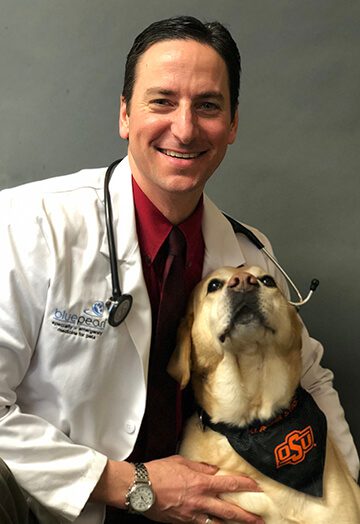Inoculation Guidelines From Your Relied On Veterinarian
Inoculation guidelines supplied by your trusted veterinarian play an important role in securing your pet's health and wellness and wellness. Furthermore, dealing with common false impressions bordering injections can even more boost pet proprietors' self-confidence in these precautionary actions.

Importance of Vaccinations
Inoculations play a critical function in securing pets against a variety of avoidable diseases. By stimulating the body immune system to identify and combat details microorganisms, vaccinations significantly minimize the occurrence of transmittable illness that can influence a pet dog's wellness and longevity. Not only do vaccinations protect individual animals, yet they also add to herd resistance, thus decreasing the overall prevalence of conditions in the family pet population.
Prompt inoculations help to minimize the spread of illness such as rabies, parvovirus, and distemper, which can have severe effects for both human beings and pets. Inoculations are commonly a requirement for boarding centers, grooming solutions, and pet dog parks, making them necessary for those who desire to mingle their pets.
Core Vaccines for Pets
While the certain inoculation requirements of pets can differ based on private factors, core vaccinations are generally advised to shield against the most serious and usual illness (Emergency Vet). Core vaccines are those regarded necessary for all animals, despite their way of living or geographical location, as they secure against very infectious and possibly fatal ailments
For pet dogs, the core vaccinations consist of those for canine distemper, parvovirus, adenovirus (liver disease), and rabies. Canine distemper is a viral condition that affects the respiratory system, stomach, and nerves. Parvovirus is recognized for causing serious stomach health problem, specifically in puppies. Adenovirus can lead to liver illness, while rabies is a zoonotic condition that positions a threat to both pets and humans.
In cats, core vaccinations encompass feline panleukopenia, feline calicivirus, feline herpesvirus (rhinotracheitis), and rabies. Feline panleukopenia is a highly transmittable viral illness that influences the body immune system and intestines. Calicivirus and herpesvirus are major contributors to upper respiratory system infections in pet cats, while rabies continues to be a vital issue for public wellness.
Seek advice from your veterinarian to guarantee your pets receive their core vaccinations on time.
Non-Core Vaccines Explained
Non-core injections are tailored to resolve details dangers connected with a pet's setting, way of living, and exposure to specific illness. Unlike core injections, which are widely recommended for all published here pets, non-core vaccines are considered based upon specific scenarios. These vaccines are especially essential for pet dogs that might experience special microorganisms due to their geographical area, travel practices, or activities.
Instances of non-core injections consist of those for Bordetella bronchiseptica, which is linked to kennel cough, and Lyme condition, brought on by ticks. Pets that regularly interact with other animals, such as those in boarding centers, canine parks, or brushing atmospheres, may gain from Bordetella vaccination. If you live in a location where Lyme illness is common, immunizing versus this disease can be a sensible selection for outdoor-loving dogs.
Other non-core injections might include those for leptospirosis, canine flu, and feline leukemia, relying on the details danger variables present. It is important to have a comprehensive discussion with your veterinarian concerning your pet's way of living and the prospective demand for these injections, making certain a tailored vaccination approach that finest shields your hairy pal.
Vaccination Arrange Review

As animals grow, it is very important to stick to the recommended booster vaccinations. Veterinarian Enterprise. For click site grown-up pets, core vaccines are usually offered every one to 3 years, depending on the particular injection and regional regulations. Non-core injections might be suggested based on way of living factors and regional illness occurrence, demanding a tailored technique
Normal vet exams are essential for updating inoculation timetables. Your vet can provide guidance on the most ideal booster shots for your pet dog, considering age, health condition, and environmental dangers. By staying positive and informed, animal owners can ensure their furry companions obtain timely and reliable inoculations, thereby protecting their health and wellness and well-being throughout their lives.
Common Misconceptions Concerning Vaccinations
Mistaken beliefs regarding animal vaccinations can cause confusion and reluctance amongst family pet proprietors pertaining to the booster shot process. One prevalent misconception is that vaccinations are unneeded for interior animals. While it's true that interior animals face reduced dangers, they are not entirely immune to diseases, as virus can be presented via numerous means, consisting of human garments and other pets.
An additional misunderstanding is that vaccines can trigger the diseases they aim to avoid. Actually, a lot of vaccines contain inactivated or undermined microorganisms, which can not create illness in healthy pets. Some family pet proprietors also believe that their family pets should not be vaccinated if they are currently healthy; nonetheless, inoculations are a positive procedure that helps avoid the onset of illness.
In addition, numerous family pet owners are afraid that vaccinations will lead to lasting health and wellness issues. The advantages of vaccination-- protecting animals from potentially lethal illness-- much exceed the dangers.
Final Thought
In summary, adherence to inoculation guidelines is essential for guaranteeing the health and wellness and durability of pets. Resolving typical misconceptions surrounding inoculations even more enhances the value of informed decision-making in animal care.
Not only do inoculations safeguard specific pets, yet they likewise add to herd immunity, thus minimizing the general frequency of illness in the pet dog population.
Misunderstandings about family pet vaccinations can lead to confusion and hesitation amongst animal proprietors concerning the booster shot procedure. While it's true that indoor pet dogs encounter lower threats, they are not totally immune to conditions, as pathogens can be introduced with numerous ways, consisting of human apparel and other family pets.
Some family pet proprietors also believe that their family pets need to not be immunized if they are already healthy; nevertheless, inoculations are an aggressive action that helps stop the start of illness.
The benefits of inoculation-- safeguarding pets from possibly deadly conditions-- far exceed the dangers.